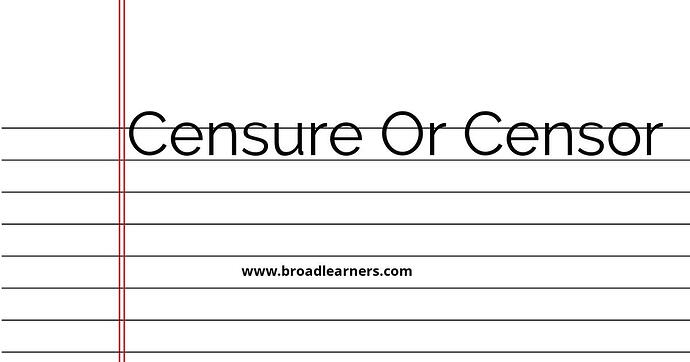'Censure' and 'censor' are commonly confused words in English grammar. Understanding the difference between 'censure' and 'censor' is important to use them correctly in written and spoken English.
'Censure' is a noun or a verb that means to express strong disapproval or criticism towards someone or something. It is often used in a formal or official context to indicate a formal reprimand or condemnation.
'Censor' is a verb that means to examine, suppress, or control something, usually for moral, political, or security reasons. It is often used in the context of censorship, which refers to the suppression or control of information, media, or speech.
Let's take a closer look at the meanings and usage of 'censure' and 'censor'.
| 'Censure' | 'Censor' |
|---|---|
| The word 'censure' is used to express strong disapproval or criticism. | The word 'censor' is used to examine, suppress, or control something, usually for moral, political, or security reasons. |
|
|
To remember the difference between 'censure' and 'censor', it can be helpful to remember that 'censure' is related to expressing disapproval or criticism, while 'censor' is related to examining, suppressing, or controlling something.
Here are some examples of correct usage:
- The company faced censure for its unfair labor practices.
- The government censors the internet to restrict access to certain information.
- The teacher censured the student for cheating on the exam.
- The film was heavily censored before its release.
Remembering the correct usage of 'censure' and 'censor' will improve your grammar and communication skills.
